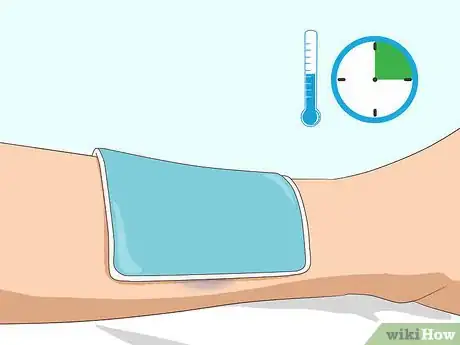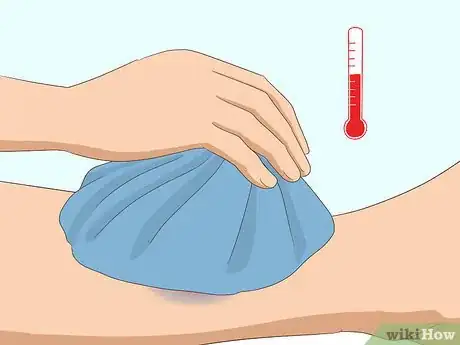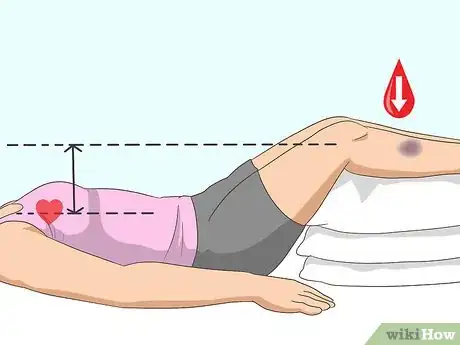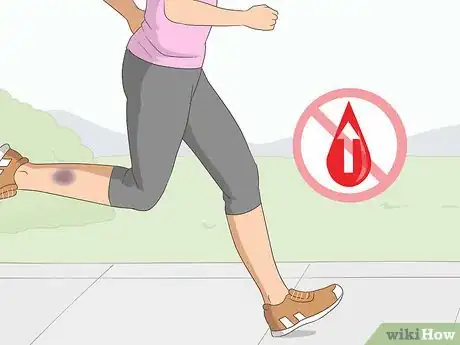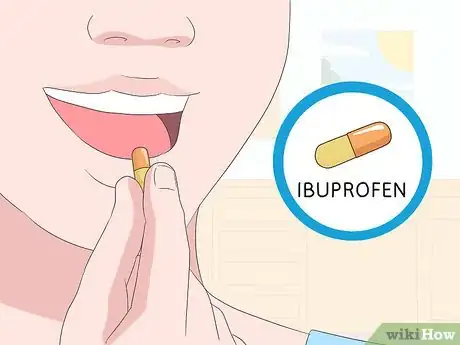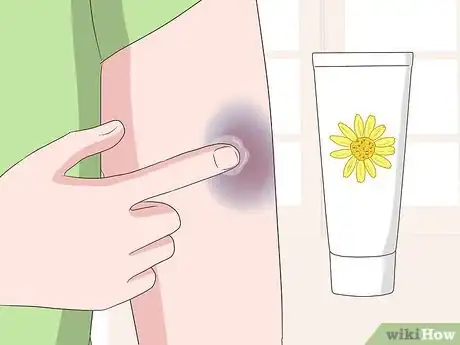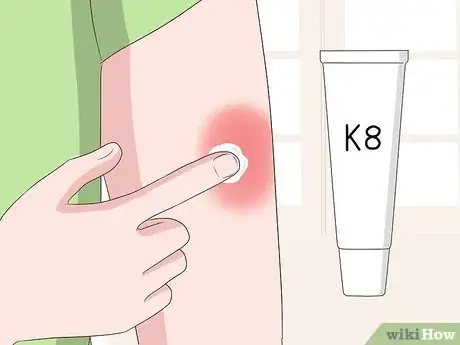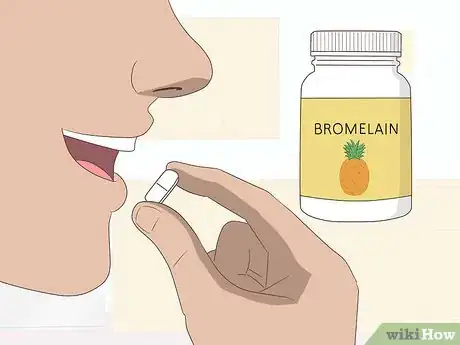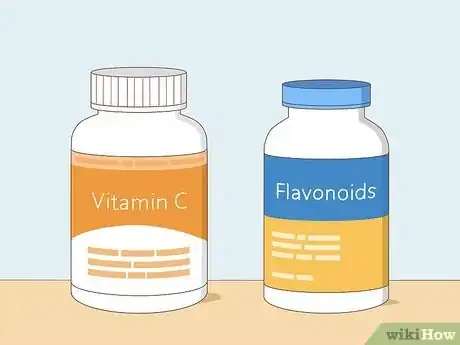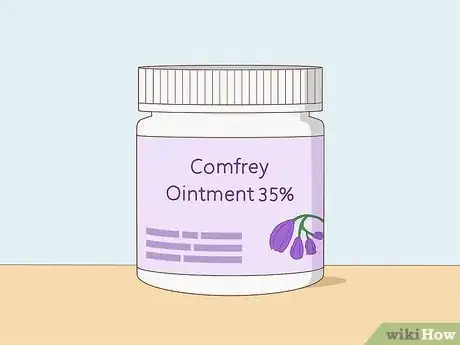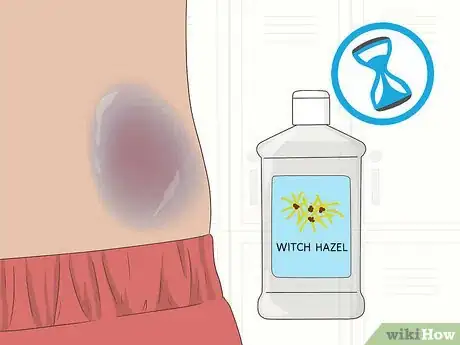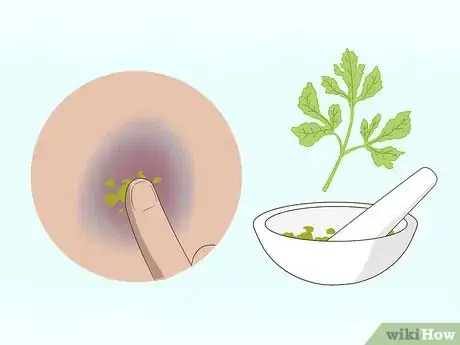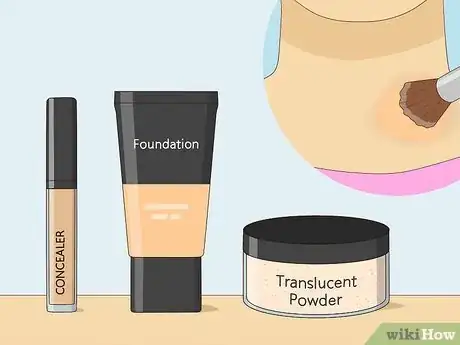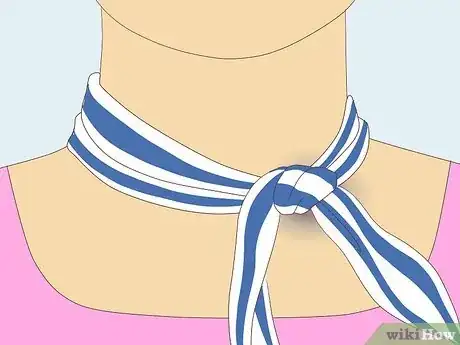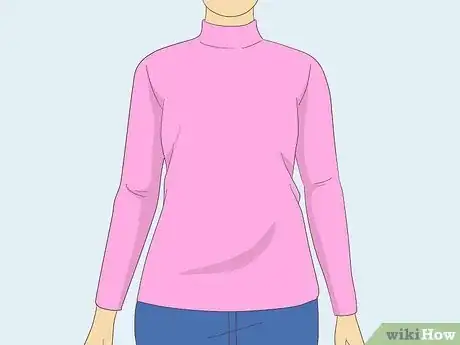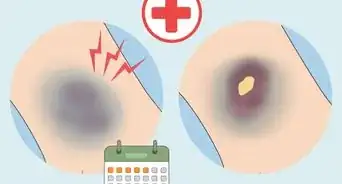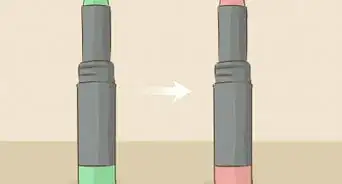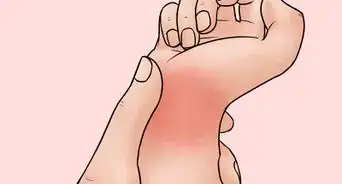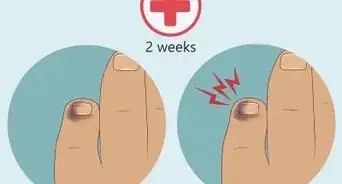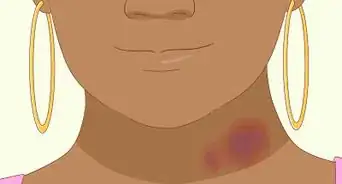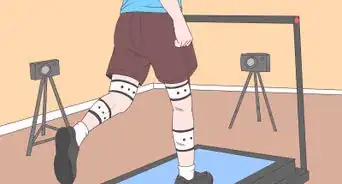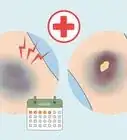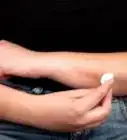This article was medically reviewed by Luba Lee, FNP-BC, MS and by wikiHow staff writer, Janice Tieperman. Luba Lee, FNP-BC is a Board-Certified Family Nurse Practitioner (FNP) and educator in Tennessee with over a decade of clinical experience. Luba has certifications in Pediatric Advanced Life Support (PALS), Emergency Medicine, Advanced Cardiac Life Support (ACLS), Team Building, and Critical Care Nursing. She received her Master of Science in Nursing (MSN) from the University of Tennessee in 2006.
There are 13 references cited in this article, which can be found at the bottom of the page.
wikiHow marks an article as reader-approved once it receives enough positive feedback. This article received 14 testimonials and 100% of readers who voted found it helpful, earning it our reader-approved status.
This article has been viewed 2,051,959 times.
Bruises often appear at the least opportune moments, creating unwanted blemishes on your skin that detract from your overall look. If you need to get rid of a bruise quickly, be it for a photo, special event, or something else, there are a number of home and professional remedies you can use to speed up the healing process.
Things You Should Know
- Apply ice to your bruise in 15-minute increments during the first few days of the injury. After the second day, place a warm compress on the bruise to help it heal.
- Elevate the bruise (if possible) so it’s above your heart to help with swelling and discoloration.
- Take acetaminophen to help manage the pain. If you'd rather take ibuprofen or aspirin, call your doctor first.
- See if natural remedies like bromelain, vitamin C, and comfrey can help heal your bruise.
Steps
Managing the Damage
-
1Ice the bruise. Ice your bruise for about 15 minutes every few hours for the first few days after incurring a bruise. Icing reduces inflammation and swelling, helping the bruise heal quickly.[1]
-
2Apply a warm compress after day two. After reducing inflammation with ice, you can apply a warm compress (not hot) directly to the bruise. This will increase blood flow to the tissue and speed up the healing process.[2]Advertisement
-
3Elevate the bruise. If your bruise is on an area that you can elevate such as one of your limbs, be sure to lift the bruise above your heart.[3] This reduces the blood flow to the bruise, which reduces swelling and discourages more blood from rushing to the bruise site and causing further discoloration. Elevation works best when performed immediately after incurring a bruise.
-
4Do not exercise heavily. For the first day or two after receiving a bad bruise, refrain from performing heavy exercise that causes blood to pump throughout your body. The more blood that flows to the bruise, the worse it will become.
Using Medication or Cream
-
1Take acetaminophen to reduce pain. Some painkillers are anti-inflammatory and can help reduce pain as well as swelling. Call your doctor before taking any NSAID painkillers, like ibuprofen or aspirin.[4]
-
2Apply arnica ointment or gel daily. Arnica is an herb that reduces inflammation and can help reduce the appearance of bruises quickly. It is available in cream or gel form at most drug stores. Apply a coating to the affected area twice daily until the bruise goes away.[5]
-
3Try topical vitamin K8 right after getting a bruise. Apply a coin-sized amount of vitamin K8 to the injury when you first get a contusion. This can help keep a bruise from forming or becoming quite so dark.[6]
Using Natural Remedies
-
1
-
2Use oral bromelain supplements to speed healing. Take 200-400mg of bromelain, an enzyme derived from pineapple, up to 3 times per day to speed healing and help the body clear a bruise after an injury.[9]
-
3Take vitamin C supplements and flavonoids if your vitamin C levels are low. Talk to your doctor about taking daily vitamin C and flavonoid supplements if you develop bruises frequently. In one small study, participants who took 1,000 mg of vitamin C and 100 mg of rutoside (a flavonoid) for 4 weeks healed from their bruising and didn't develop further bruises over the next 3 months.[10]
- It might help to eat foods that are rich in vitamin C and flavonoids, like vegetables and fruits.
-
4
-
5Soak the bruise in witch hazel 3 times a day. Pour witch hazel on a cotton ball and press it on top of the bruise for 2 minutes. Repeat this 3 times per day until the bruise is gone.[13]
-
6Crush parsley and rub it directly on the bruise. Parsley may contain anti-inflammatory properties that can help a bruise disappear quicker.[14]
Hiding the Bruise
-
1Apply makeup strategically to cover the bruise. Grab a concealer shade that’s a little bit lighter than your regular skin tone and apply it to the bruise. Follow up with a layer of your go-to foundation, along with a dusting of translucent powder.[15]
- If you’re covering up a facial bruise, apply the foundation and translucent powder to your entire face.
- For a more convincing cover-up, choose a concealer shade that offsets your bruise (e.g., peach concealer for a blue-toned bruise, green concealer for a red-toned bruise, light purple concealer for a yellow-toned bruise, etc.).
-
2Cover up the bruise with accessories. Slip on a scarf to cover any obvious bruises around your neck area.[16] Sunglasses could also be an effective way to hide bruises around the eyes and upper cheeks.
- Wearing eye-catching accessories might help direct attention away from your bruises and to another part of your outfit.
-
3Wear clothes that hide the bruise. Slip on a long-sleeve shirt or pants to hide any bruises on your arms or legs. Turtlenecks (or any other high-necked shirt) could be an especially effective way to cover up any bruises around your neck.
References
- ↑ https://www.mayoclinic.org/first-aid/first-aid-bruise/basics/art-20056663
- ↑ https://kidshealth.org/en/teens/bruises.html
- ↑ https://kidshealth.org/en/teens/bruises.html
- ↑ https://my.clevelandclinic.org/health/diseases/15235-bruises#management-and-treatment
- ↑ https://www.ncbi.nlm.nih.gov/pmc/articles/PMC5367875/
- ↑ https://www.ncbi.nlm.nih.gov/pmc/articles/PMC5367875/
- ↑ https://www.mountsinai.org/health-library/supplement/bromelain
- ↑ https://www.huffpost.com/entry/surgery-healing_b_1623113
- ↑ https://www.ncbi.nlm.nih.gov/pmc/articles/PMC5367875/
- ↑ https://www.peacehealth.org/medical-topics/id/hn-1172006#hn-1172006-supplements
- ↑ https://wa.kaiserpermanente.org/kbase/topic.jhtml?docId=hn-2073000
- ↑ https://www.mountsinai.org/health-library/herb/comfrey
- ↑ https://www.bhg.com.au/how-to-get-rid-of-bruises-12-bruise-treatments
- ↑ https://www.besthealthmag.ca/best-you/home-remedies/heal-bruises-naturally/
- ↑ https://www.beeson.com/wp-content/uploads/2020/10/How-to-Use-Make-Up-to-Cover-Up-a-Bruise.pdf
- ↑ https://health.clevelandclinic.org/how-to-get-rid-of-a-hickey/
About This Article
When you first notice your bruise, ice it for about 15 minutes every few hours to reduce inflammation. You can also take acetaminophen or ibuprofen to reduce swelling and manage pain. Additionally, while your bruise heals, massage the affected area often and keep it elevated as much as possible. If your bruise hasn't disappeared after 2 days, stop icing your bruise and start applying a warm compress to it 3 to 4 times a day. For tips on how to heal your bruise using vinegar, parsley, cayenne pepper, and other home remedies, read on!
